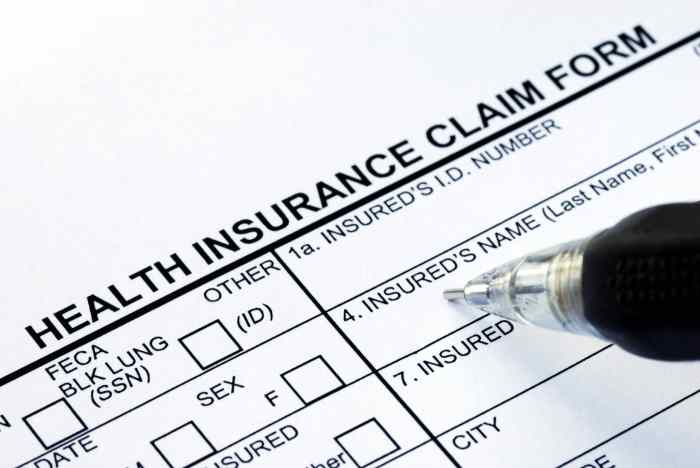Insurance for uninsured medical bills takes center stage, beckoning readers into a world of financial protection and peace of mind. In this comprehensive guide, we delve into the intricacies of managing unexpected healthcare costs without insurance coverage.
Exploring the various types of insurance coverage available, factors to consider when choosing the right plan, and practical strategies for handling uninsured medical bills, this guide equips you with the knowledge needed to navigate the complex healthcare landscape effectively.
Overview of Uninsured Medical Bills and Insurance
Uninsured medical bills refer to healthcare expenses incurred by individuals who do not have health insurance coverage. These bills can arise from unexpected illnesses, accidents, or medical emergencies, leaving individuals financially burdened.
Insurance plays a crucial role in helping individuals cover uninsured medical bills by providing financial protection and access to quality healthcare services. Health insurance policies can help mitigate the financial impact of medical expenses by covering a portion or all of the costs associated with hospitalizations, surgeries, medications, and other healthcare services.
Importance of Having Insurance for Unexpected Medical Expenses
Having insurance for unexpected medical expenses is essential to protect individuals and their families from financial hardship in times of need. Without insurance, individuals may face significant out-of-pocket costs for medical treatments, which can lead to debt, bankruptcy, or the inability to access necessary healthcare services.
- Insurance provides a safety net: Health insurance offers a safety net by ensuring that individuals have access to affordable healthcare services when they need them the most.
- Preventive care and early intervention: With insurance coverage, individuals can receive preventive care and early intervention services, which can help detect and treat health conditions before they escalate into more serious and costly issues.
- Peace of mind: Knowing that they are covered by insurance can give individuals peace of mind, allowing them to focus on their health and well-being without worrying about the financial implications of medical expenses.
Types of Insurance Coverage for Uninsured Medical Bills

When it comes to dealing with uninsured medical bills, there are several types of insurance coverage options that individuals can consider. Each type of insurance has its own benefits and limitations, so it’s important to understand the differences between them.
Health Insurance
Health insurance is a type of coverage that helps pay for medical expenses incurred by individuals. This can include hospital stays, surgeries, prescription medications, and other healthcare services. Health insurance policies can vary in terms of coverage limits, premiums, and deductibles. While health insurance provides comprehensive coverage for a wide range of medical services, it may not cover all expenses, and individuals may still be responsible for copayments or coinsurance.
Medical Payment Coverage
Medical payment coverage, also known as MedPay, is a type of insurance that helps pay for medical expenses resulting from a car accident, regardless of who is at fault. This coverage can help with expenses such as ambulance rides, hospital stays, and doctor’s visits. Medical payment coverage typically has lower limits compared to health insurance, but it can provide additional financial support for medical bills related to accidents.
Other Relevant Insurance Options
In addition to health insurance and medical payment coverage, there are other relevant insurance options that can help with uninsured medical bills. This includes disability insurance, which provides income replacement if an individual is unable to work due to a medical condition, and critical illness insurance, which pays a lump sum if the insured is diagnosed with a serious illness. These insurance options can provide additional financial protection in case of unexpected medical expenses.
Overall, each type of insurance coverage for uninsured medical bills has its own advantages and limitations. Health insurance offers comprehensive coverage but may have higher premiums and out-of-pocket costs. Medical payment coverage is specific to accidents but can provide additional support for related medical bills. Other insurance options can offer specialized coverage for specific situations, providing additional financial protection for individuals facing medical expenses.
Factors to Consider When Choosing Insurance for Uninsured Medical Bills

When selecting insurance for uninsured medical bills, individuals should carefully consider various factors to ensure they have adequate coverage for potential expenses.
Deductibles, Copayments, and Coverage Limits
One key factor to consider is the deductible, which is the amount individuals must pay out of pocket before the insurance coverage kicks in. Lower deductibles may result in higher monthly premiums, while higher deductibles can lead to lower premiums.
Copayments are another important consideration, as they are the fixed amount individuals must pay for covered services after meeting the deductible. Understanding copayment amounts for different services can help individuals budget for medical expenses.
Coverage limits are also crucial, as they determine the maximum amount the insurance will pay for covered services. Individuals should carefully review coverage limits to ensure they align with their potential medical needs.
Tips for Evaluating Insurance Plans
- Compare coverage options: Evaluate different insurance plans to determine which one offers the best coverage for uninsured medical bills.
- Review network providers: Ensure that the insurance plan includes a network of healthcare providers where individuals can receive care without incurring additional costs.
- Consider additional benefits: Some insurance plans may offer additional benefits such as telemedicine services or wellness programs that can help individuals manage their healthcare needs.
- Check for exclusions: Review the policy exclusions to understand what services are not covered by the insurance plan, allowing individuals to plan for potential out-of-pocket expenses.
Strategies for Managing Uninsured Medical Bills Without Insurance: Insurance For Uninsured Medical Bills

Managing uninsured medical bills can be overwhelming, but there are alternative strategies individuals can consider to navigate the financial burden effectively.
Negotiating Medical Bills
Negotiating medical bills with healthcare providers can be a viable option to reduce costs. Patients can inquire about discounts for upfront payments, payment plans, or even request a lower overall bill. It’s essential to communicate openly with the billing department and explore available options.
Applying for Financial Assistance, Insurance for uninsured medical bills
Many hospitals and healthcare facilities offer financial assistance programs for individuals with limited income or facing financial hardship. Patients can inquire about these programs, submit the required documentation, and potentially qualify for reduced or discounted medical bills. It’s crucial to research and understand the eligibility criteria for each program.
Setting Up Payment Plans
Setting up a payment plan with healthcare providers can help individuals manage their medical bills effectively. Patients can work with the billing department to establish a feasible payment schedule based on their financial situation. It’s important to stick to the agreed-upon payment plan to avoid additional fees or penalties.
Minimizing Healthcare Costs
To minimize healthcare costs without insurance coverage, individuals can explore options such as utilizing community health centers, seeking generic medications, or opting for preventive care services. It’s essential to prioritize health needs, research affordable healthcare options, and stay proactive in managing healthcare expenses.
Navigating the Healthcare System
Navigating the healthcare system without insurance can be challenging, but individuals can seek guidance from patient advocacy organizations, social workers, or healthcare navigators. These resources can provide valuable support, connect individuals to available services, and help them understand their rights as healthcare consumers. It’s crucial to stay informed, ask questions, and advocate for affordable healthcare options.
In conclusion, understanding the importance of insurance for uninsured medical bills is crucial in safeguarding your financial well-being. By being informed about different coverage options and proactive strategies, you can better prepare for unforeseen medical expenses and ensure access to quality healthcare when needed.
When it comes to finding the best liability car insurance, it’s important to consider the coverage options that suit your needs. From bodily injury liability to property damage liability, best liability car insurance provides the protection you need on the road.
For uninsured drivers, having the right insurance coverage is crucial. Whether it’s protecting yourself or others in the event of an accident, insurance for uninsured drivers offers peace of mind and financial security.
Understanding comprehensive coverage is essential for safeguarding your vehicle against unforeseen incidents. From theft to natural disasters, comprehensive coverage explained ensures you’re protected in various scenarios.



